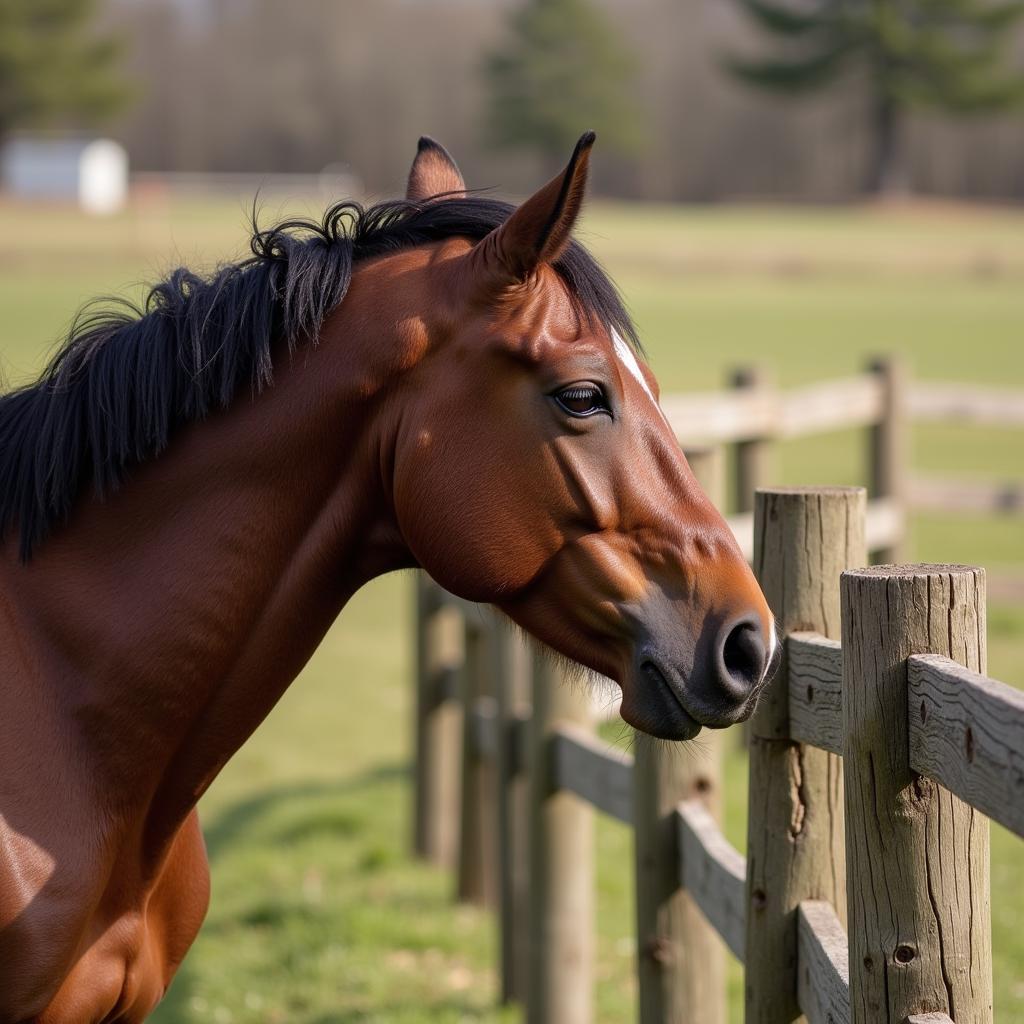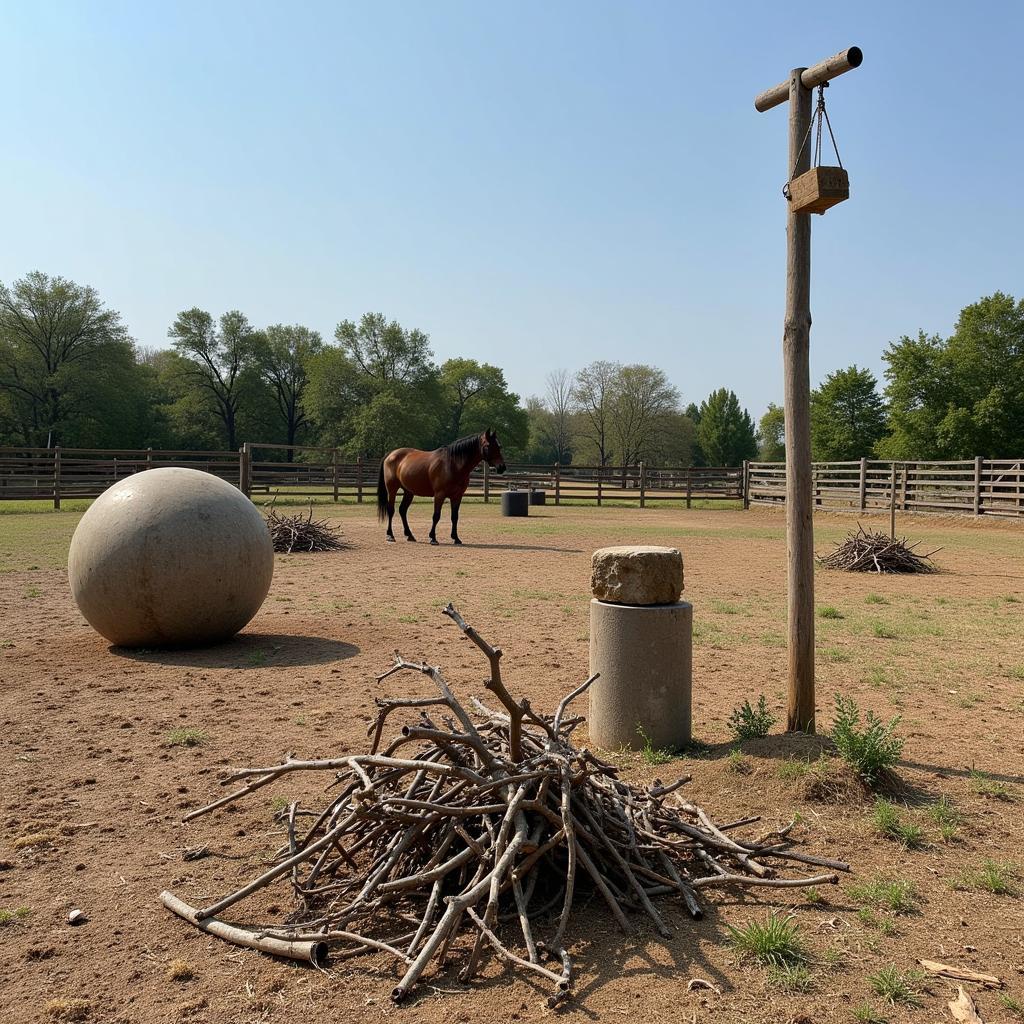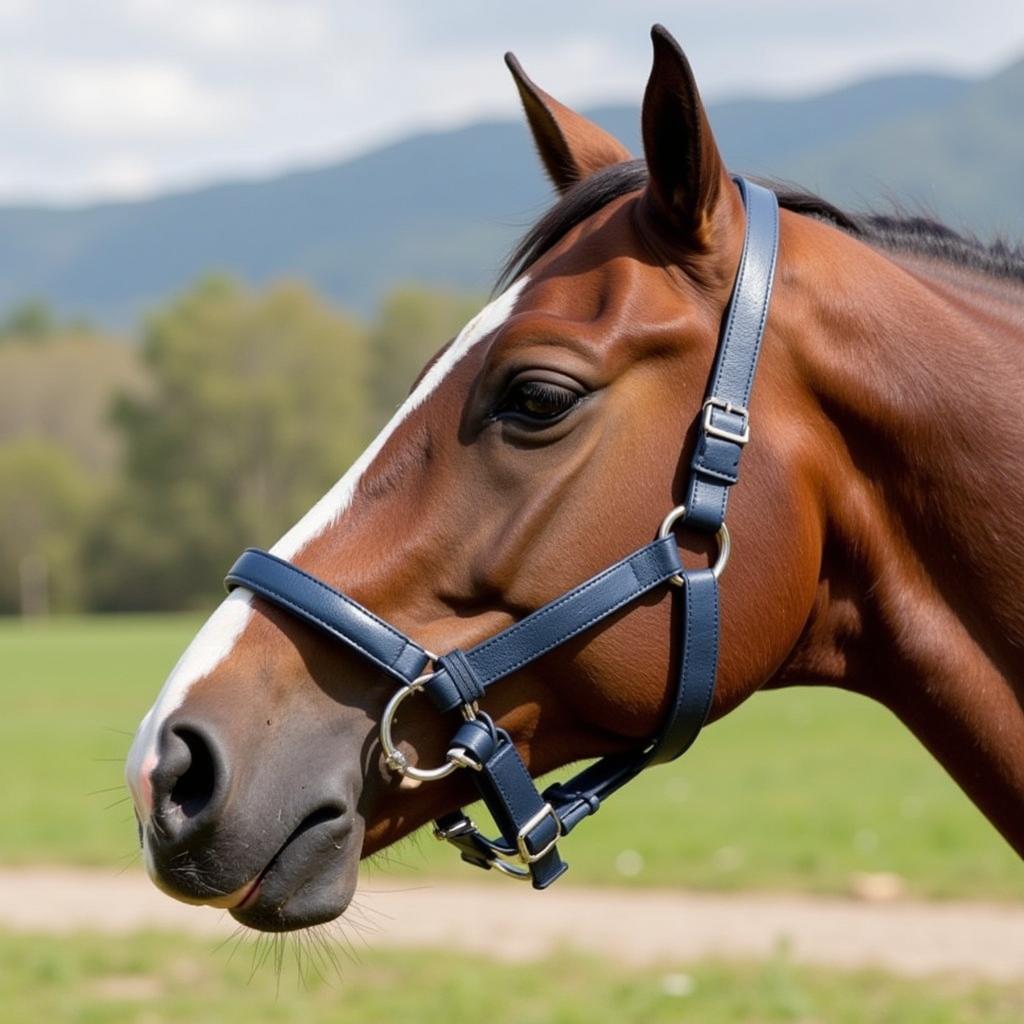Horse Suckers, also known as windsucking or cribbing, is a compulsive behavior in horses where they bite onto a fixed object, arch their neck, and suck in air. This action often produces a characteristic grunting sound. While seemingly harmless, horse suckers can lead to several health issues, including colic, weight loss, and dental damage. Understanding this behavior is crucial for effective management and ensuring your horse’s well-being.
Why Do Horses Become Suckers?
 Horse demonstrating cribbing behavior
Horse demonstrating cribbing behavior
Several factors contribute to a horse developing a sucking habit. One prominent theory is that it’s a coping mechanism for stress or boredom. Horses kept in confined spaces with limited social interaction or foraging opportunities are more prone to this behavior. Dietary factors, such as a lack of roughage, can also play a role. Additionally, some studies suggest a genetic predisposition, with some breeds being more susceptible than others. Early weaning and stressful events during foalhood have also been linked to the development of this compulsive behavior.
Identifying the Signs of a Horse Sucker
Recognizing the signs early is vital. Beyond the obvious act of sucking air and the accompanying grunting noise, look for wear and tear on fences, stall walls, or any other fixed objects the horse frequently contacts. Excessive salivation and increased wear on the front teeth are also common indicators.
Managing Horse Suckers: Effective Strategies
 Environmental enrichment for horses to prevent cribbing
Environmental enrichment for horses to prevent cribbing
Managing horse suckers requires a multi-pronged approach. Addressing underlying causes, like stress and boredom, is paramount. Increasing turnout time, providing ample roughage, and introducing environmental enrichment can significantly reduce the behavior. Toys, such as large balls or hanging treats, can help keep horses occupied and mentally stimulated.
Dietary Adjustments for Horse Suckers
Providing a diet rich in roughage is essential. This keeps horses occupied with chewing, which can help satisfy their oral fixation. Consider switching to slow-feed hay nets to prolong feeding time and mimic natural grazing. flea and tick prevention for horses Ensure your horse has access to fresh, clean water at all times.
Physical Deterrents and Other Management Techniques
 Horse wearing a cribbing collar
Horse wearing a cribbing collar
Physical deterrents, such as cribbing collars, can be used to discourage the behavior. These collars apply pressure to the throat latch area when the horse attempts to suck air, making it less appealing. However, it’s crucial to ensure the collar is properly fitted and doesn’t restrict breathing or swallowing. Consult with a veterinarian or equine professional for guidance on proper usage. Surgical intervention is a last resort and should only be considered after other management strategies have been exhausted.
“Environmental enrichment is key to preventing and managing cribbing. A bored horse is a horse looking for trouble.” – Dr. Emily Carter, Equine Veterinarian
“Addressing dietary needs, especially ensuring adequate roughage, is a crucial step in managing horse suckers.” – John Davis, Certified Horse Trainer
Conclusion
Understanding horse suckers and their underlying causes is essential for effective management. By addressing stress, boredom, and dietary factors, alongside utilizing appropriate management techniques, you can help your horse overcome this compulsive behavior and improve its overall well-being. Remember, seeking professional advice from a veterinarian or equine specialist is always recommended. Addressing horse suckers promptly will contribute significantly to your horse’s long-term health and happiness.
FAQs
- Can horse suckers be cured? While completely eliminating the behavior can be challenging, managing it effectively to minimize its occurrence is achievable.
- Are horse suckers contagious? No, cribbing is not contagious. It’s a learned behavior, often influenced by environment and management practices.
- Is cribbing painful for horses? While the act itself might not be painful initially, the long-term effects, such as dental damage and digestive issues, can cause discomfort.
- Can a cribbing collar harm my horse? If fitted correctly, a cribbing collar should not cause harm. Improper fitting, however, can restrict breathing and swallowing.
- Are certain breeds more prone to cribbing? Yes, some breeds, such as Thoroughbreds and Warmbloods, are statistically more likely to crib.
- How does stress contribute to cribbing? Stress can trigger compulsive behaviors as a coping mechanism.
- What are some effective environmental enrichment strategies for horses? Providing toys, increasing turnout time, and offering varied foraging opportunities are effective enrichment strategies.
If you need assistance, please contact us at Phone Number: 0772127271, Email: [email protected], or visit our address: QGM2+WX2, Vị Trung, Vị Thuỷ, Hậu Giang, Việt Nam. Our customer care team is available 24/7.